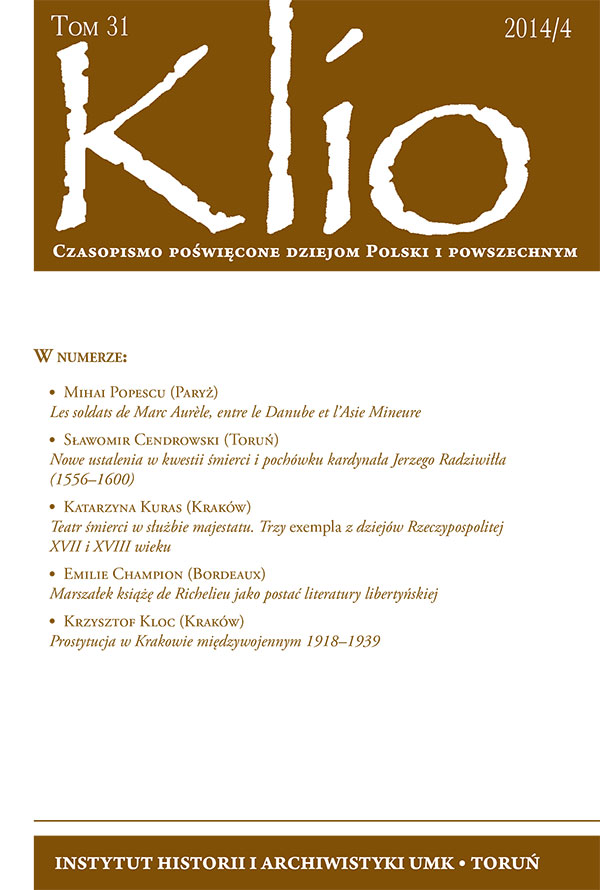Prostytucja w Krakowie międzywojennym 1918–1939
DOI :
https://doi.org/10.12775/KLIO.2014.059Résumé
Despite the fact that harlotry in the Second Polish Republic was legal, as long as it had been reported to the relevant institution, it was still on the moral marginsof social life. Moreover, the residents of Cracow were very concerned about the issue of indecency in the city. The prostitutes and other individuals involved in the
business of prostitution were stigmatized by the rest of Cracow’s society. Thus, the occurrence of prostitution permanently ingrained and present since the Middle
Ages, was not only the everyday part of Cracow’s interwar urban landscape, but also a significant social issue, which the administration, police, but also ordinary
residents were attempting to resolve. Hence, there are very opulent archival and press release materials preserved, such as statistics and other materials regarding the key causes and determinants of prostitution, but also the exact locations in
the area around the Wawel Royal Castle in which the phenomenon took place on a regular basis and various materials related to the age and education of harlots, financial matters associated with prostitution and the issue of health of prostitutes, which allow us to perform a deep analysis of many socials problems related to
Cracow’s interwar world of harlotry. Likewise, administrative and police measures against Krakow’s adultery underworld have been discussed.
Téléchargements
Publiée
2015-05-28
Comment citer
1.
KLOC, Krzysztof. Prostytucja w Krakowie międzywojennym 1918–1939. Klio - Czasopismo Poświęcone Dziejom Polski i Powszechnym. Online. 28 mai 2015. Vol. 31, no. 4, p. 87–129. [Accessed 11 février 2026]. DOI 10.12775/KLIO.2014.059.
Numéro
Rubrique
Artykuły
Stats
Number of views and downloads: 3454
Number of citations: 0



